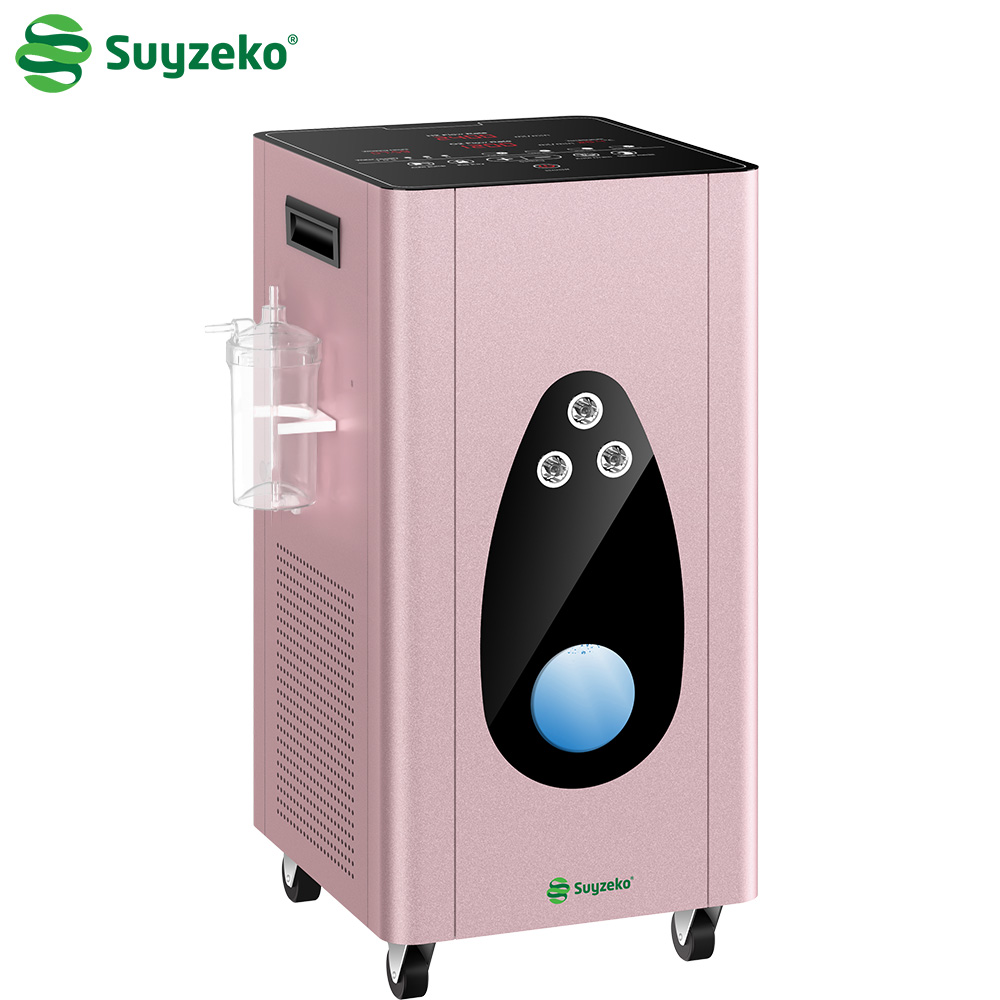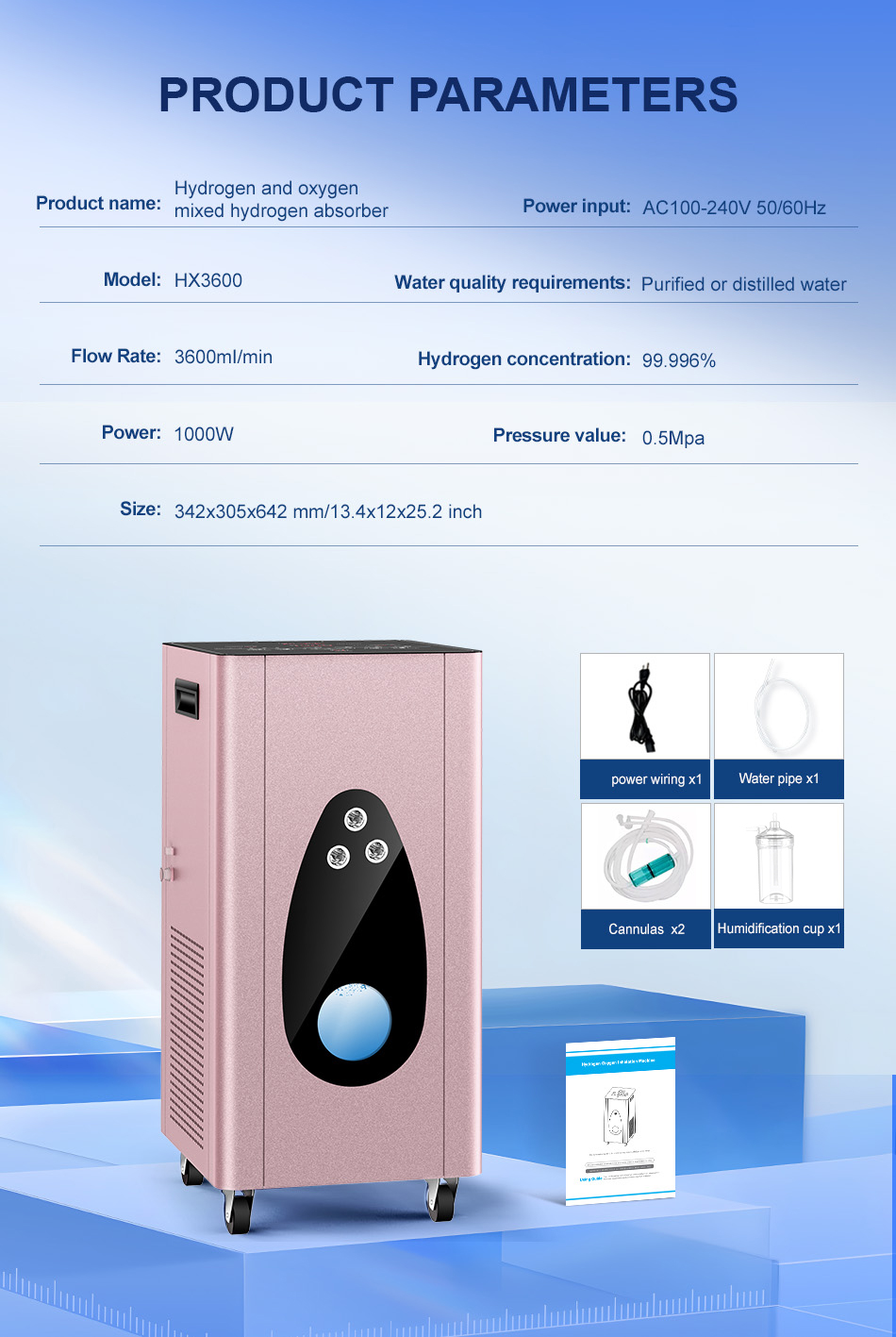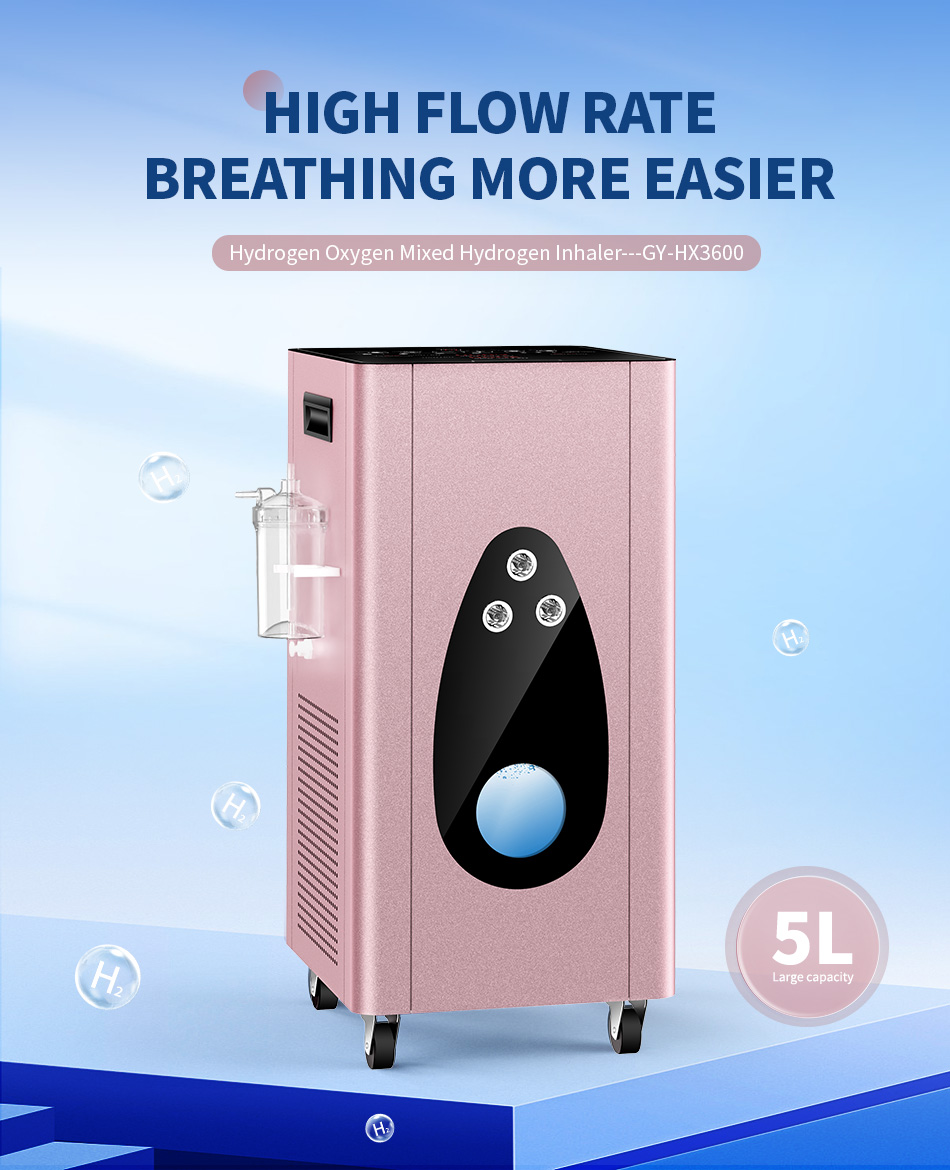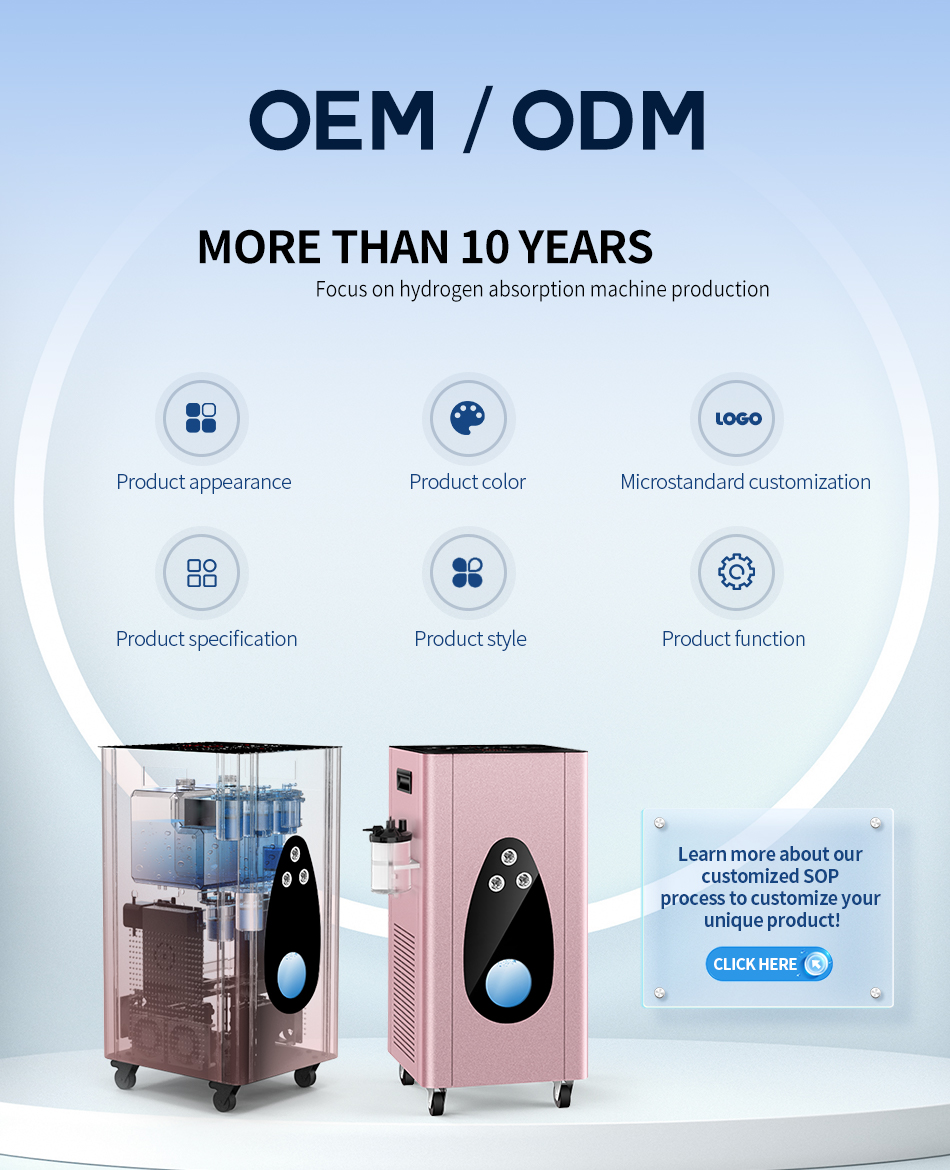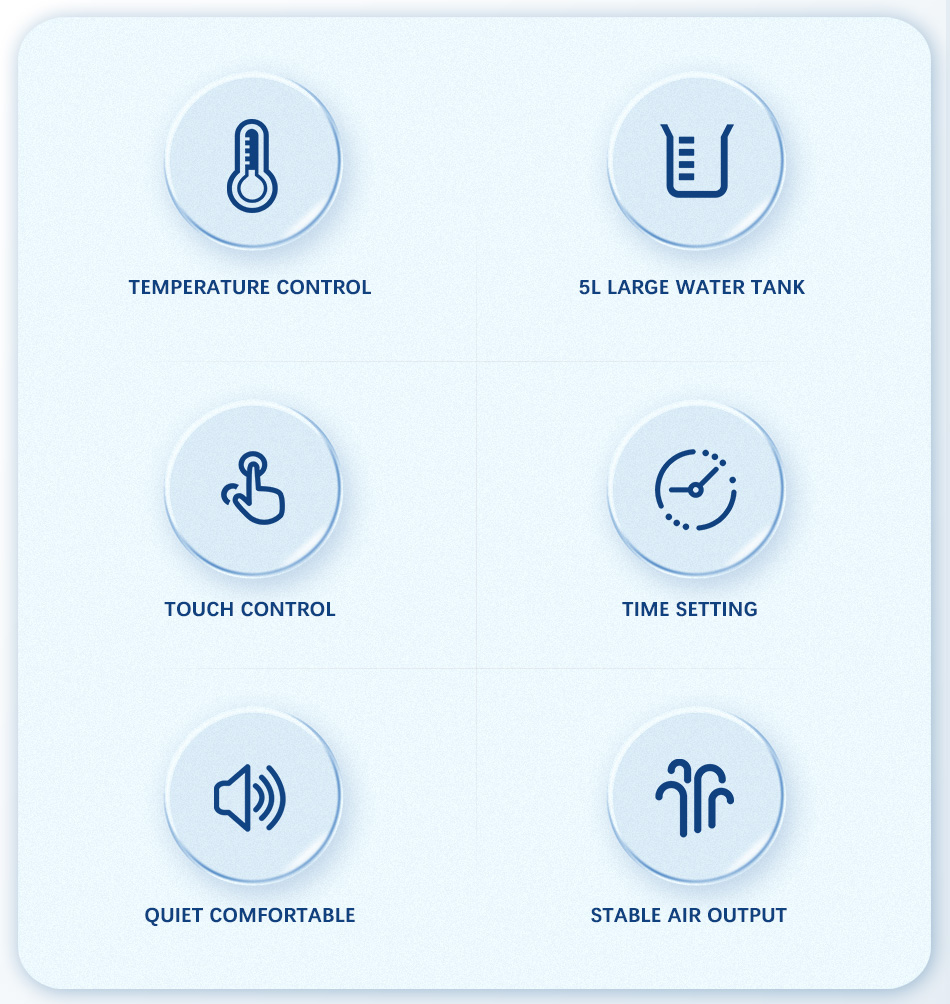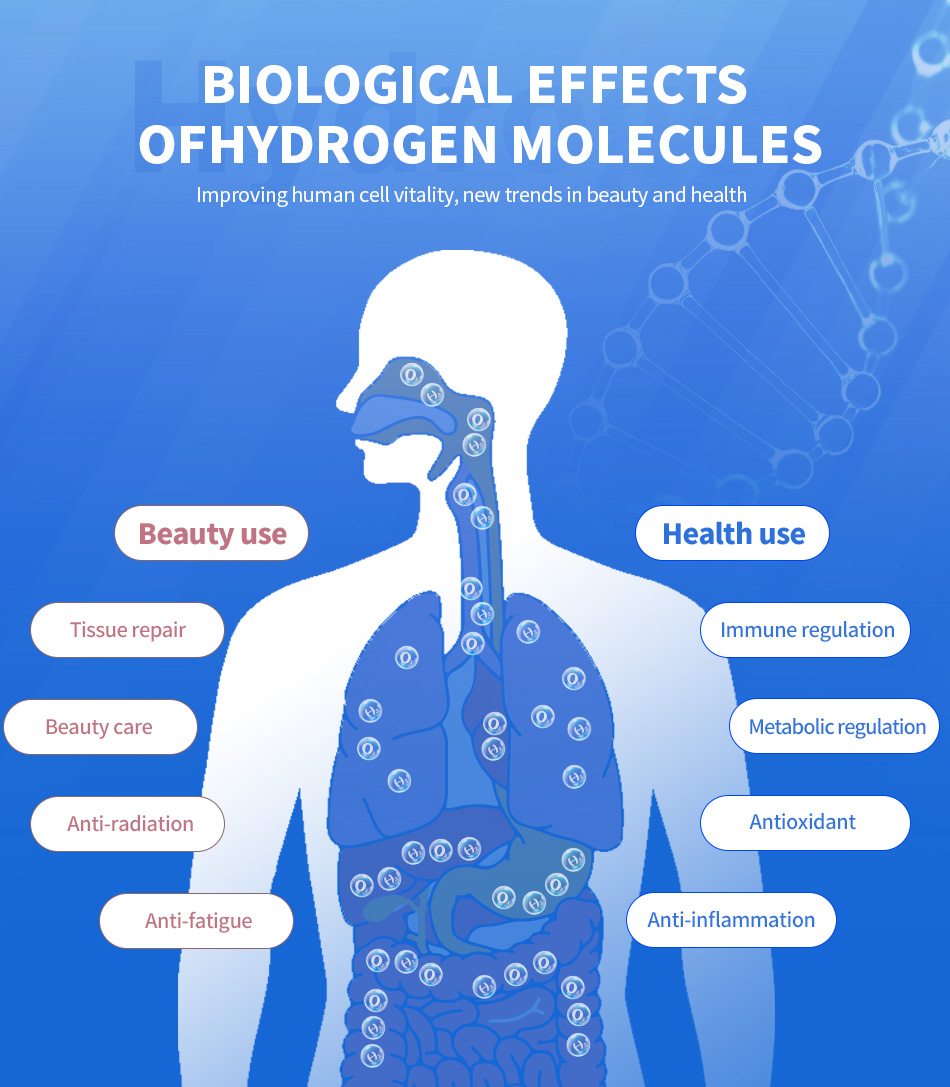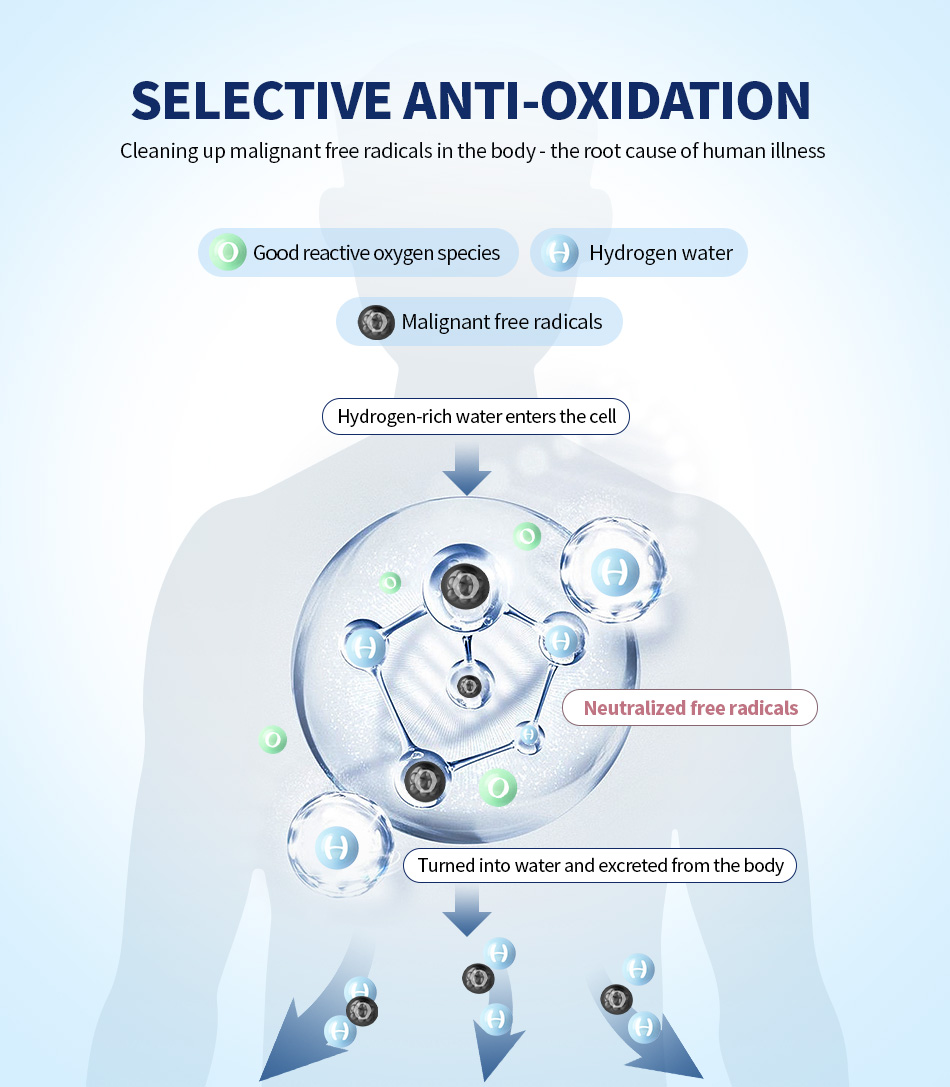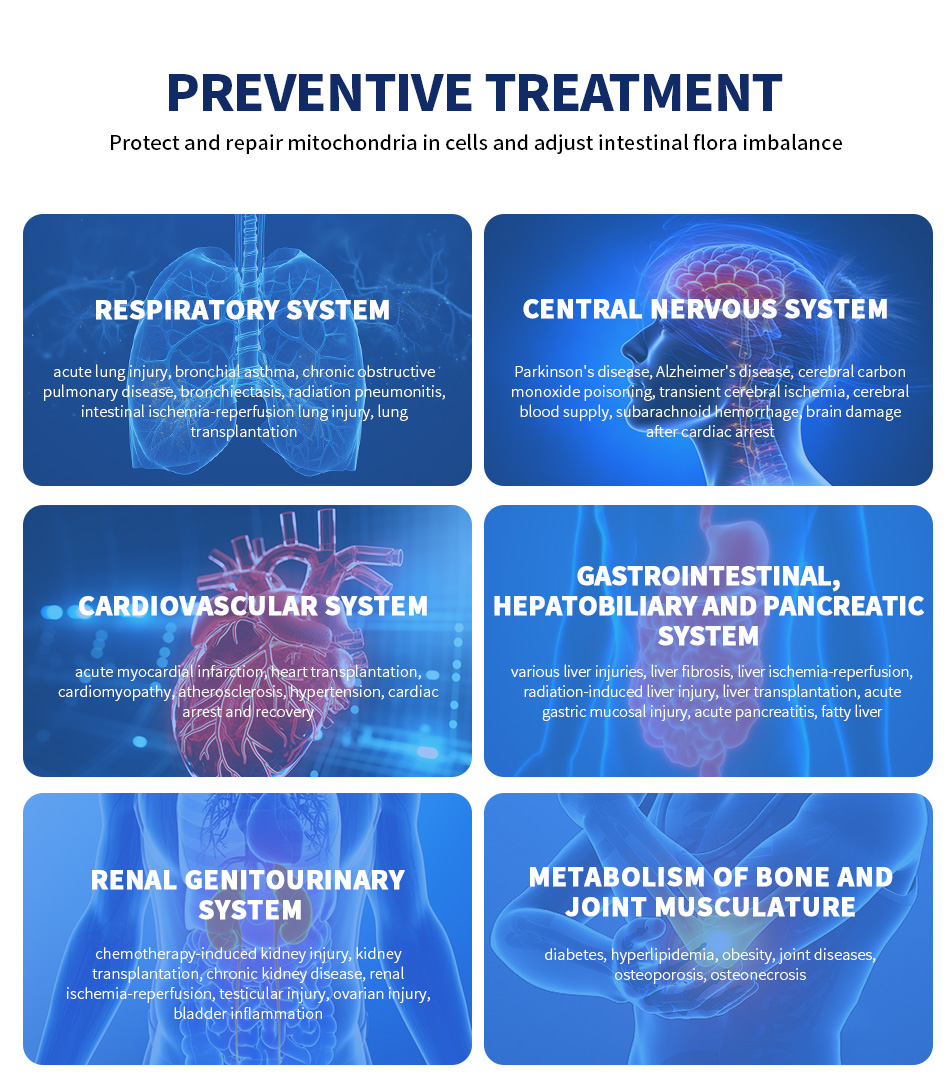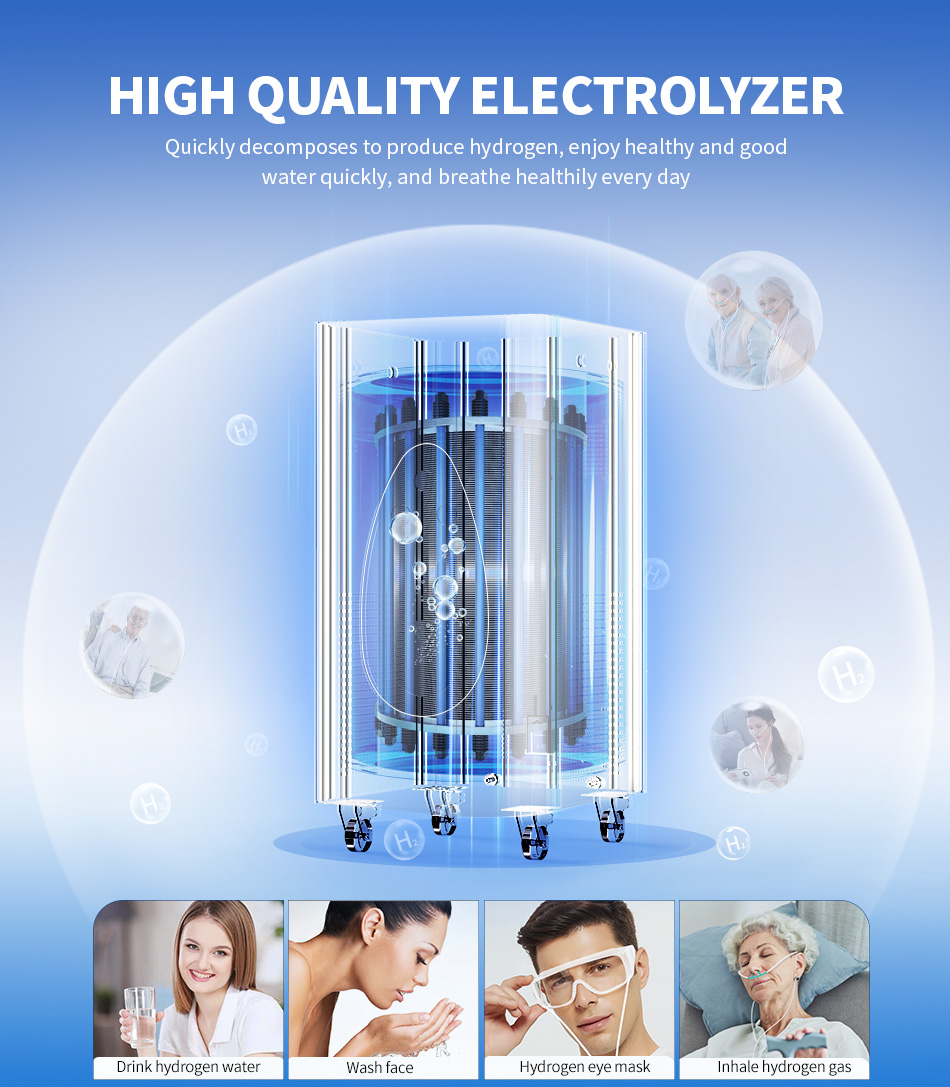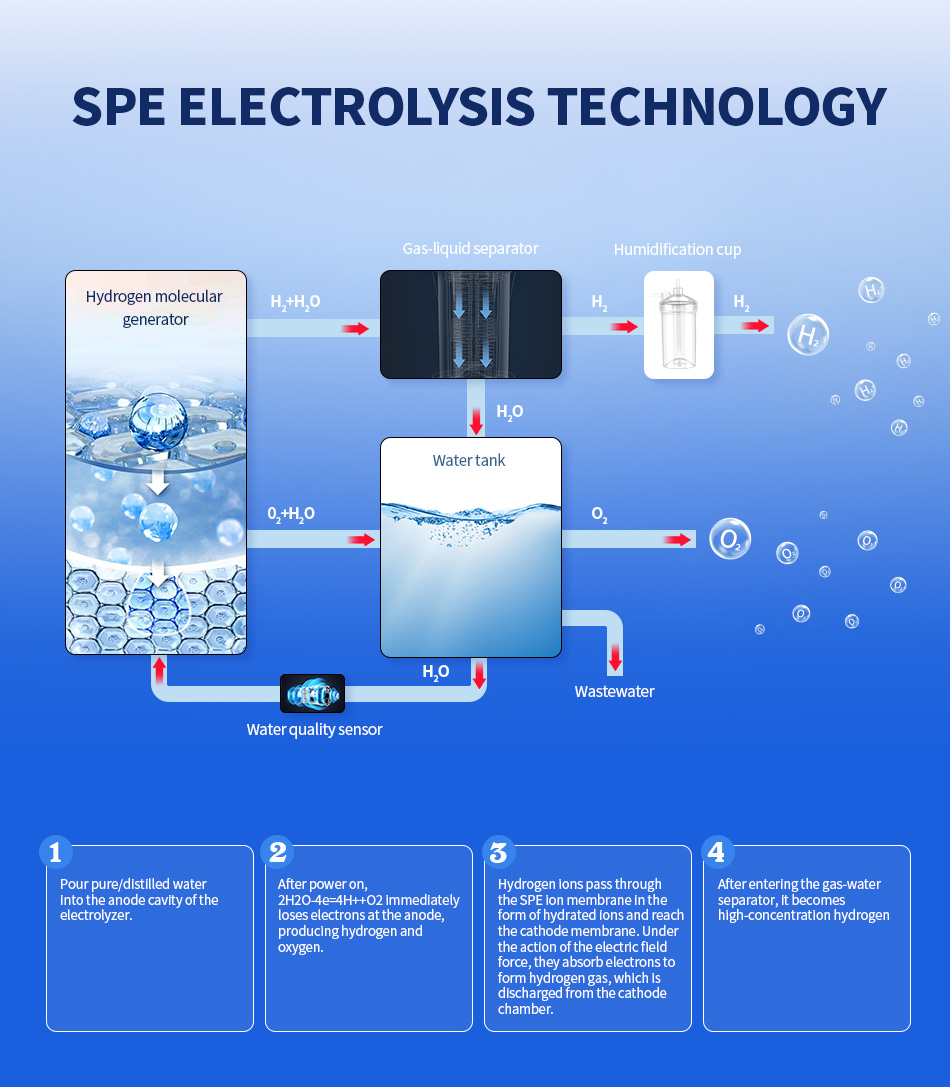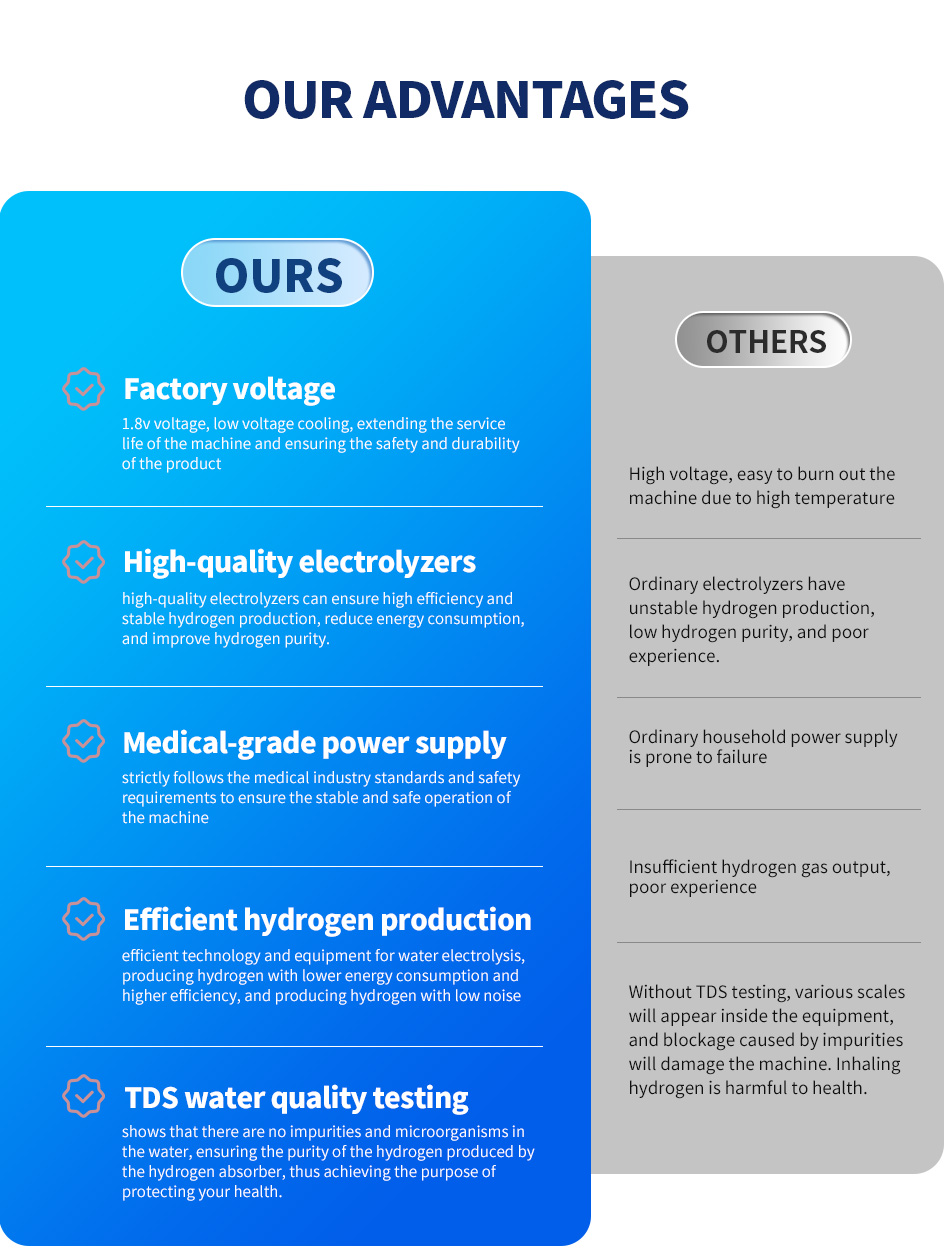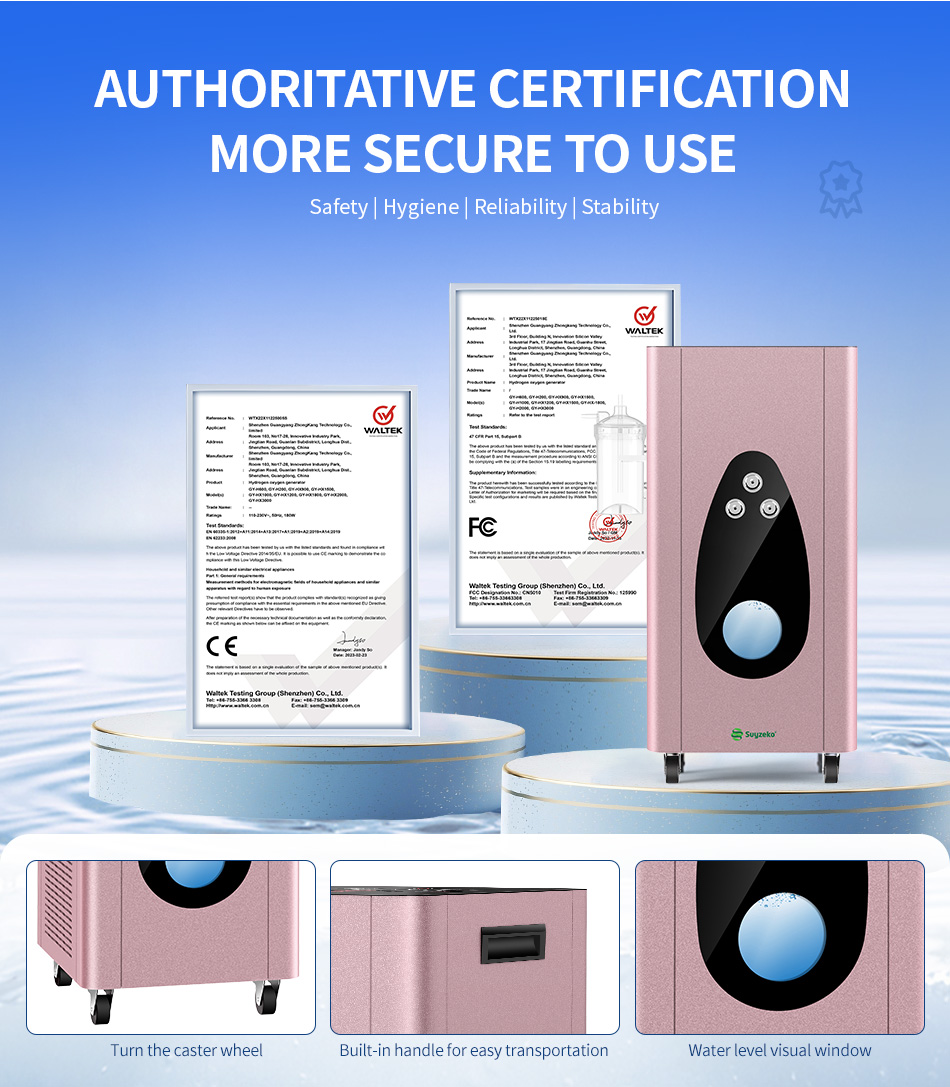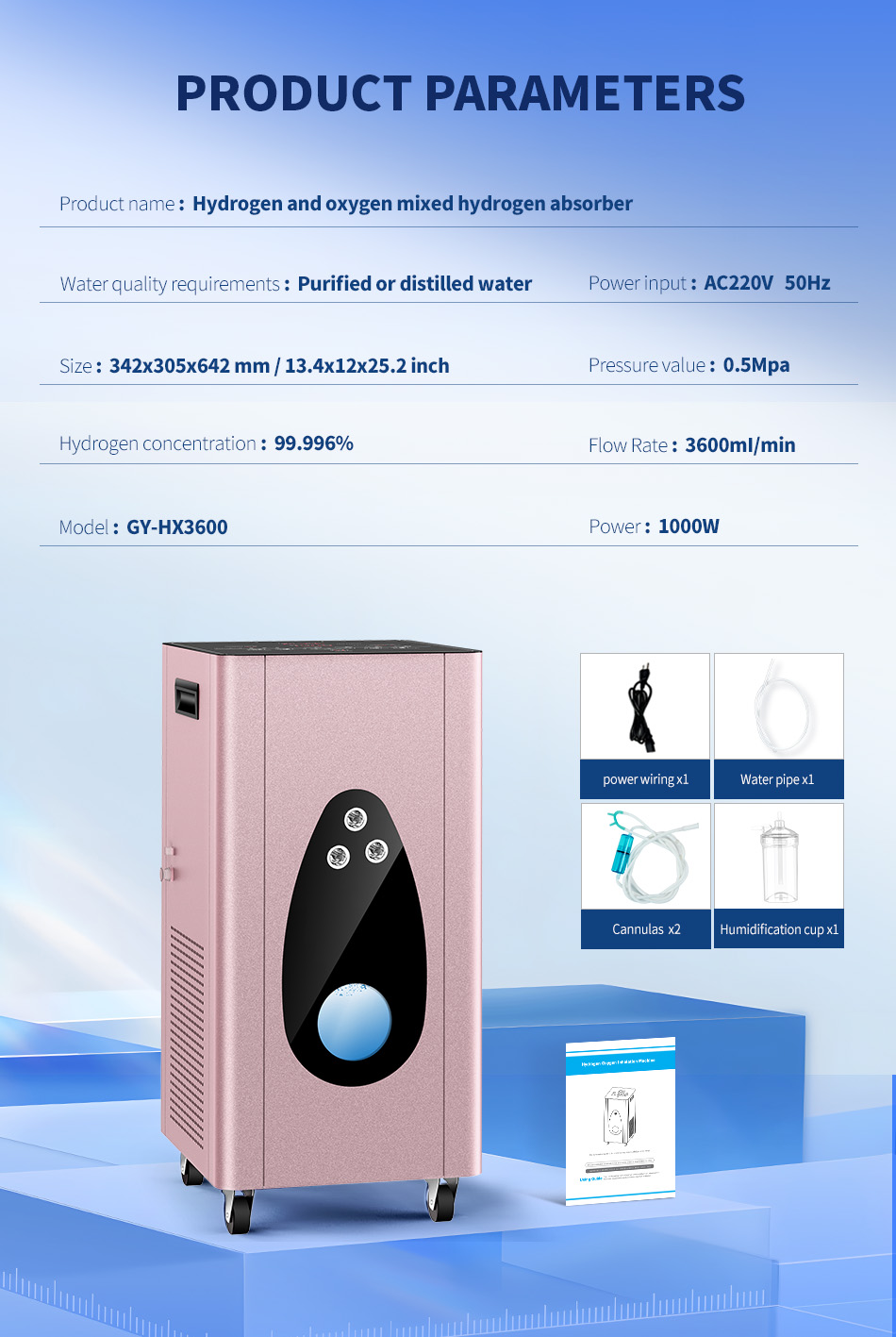3600ml/min Professional Hydrogen Oxygen Gas Absorption Therapy Machine
$6,980.00 USD
① 99.996% H2 gas output, high purity of hydrogen inhalation.
②Stable output pressure H2 flow rate
③TDS water quality testing function to monitor water quality in the tank .
④Intelligent protections against over-heat , over-pressure, and over-current, excess water , low water ect.
***excellent over-heat , even after continues using for 8 hours, the machine doesnt excess 40 ℃
Here are some of the potential benefits of hydrogen gas therapy:
1. Pain Management: Hydrogen gas therapy can be effective in managing pain, particularly neuropathic pain. In one study, patients with chronic neuropathic pain reported significant decreases in pain intensity after three months of hydrogen gas inhalation.
2. Inflammatory Response: Hydrogen gas therapy can downregulate the inflammatory response, which can be beneficial for conditions such as rheumatoid arthritis and inflammatory bowel disease. In one study, participants with rheumatoid arthritis showed decreased levels of inflammatory markers after three months of hydrogen gas inhalation.
3. Cancer Prevention: Some studies have shown that hydrogen gas therapy can potentially prevent cancer by suppressing the growth of cancer cells. In one study, hydrogen gas inhalation inhibited the growth of human breast cancer cells in vitro.
4. Neural Function: Hydrogen gas therapy may have potential for improving neural function, particularly in the elderly. In one study, elderly adults showed improved cognitive function after six months of hydrogen gas inhalation.
Recommended Combination
Red Light Therapy Bed + Hydrogen Inhalation machine
:Red + near-infrared light whole body irradiation, used for pain treatment, body sculpture, reduce wrinkle.+H2 Relieve stress and antioxidant.
Light Therapy Mask + Hydrogen Inhalation
Hydrogen Benefits
Hydrogen Inhalation Therapy For Cataracts
Researchers found that exposure to molecular oxygen accelerated the development of cataracts. Molecular hydrogen neutralizes these reactive oxygen species (ROS) and prevents cataract development. Hydrogen inhalation Therapy For Vascular Health Hydrogen is a potent anti-oxidant that can help to neutralize the free radicals, or Reactive Oxygen Species (ROS) that cause inflammation and lead to plaque buildup.
Hydrogen inhalation Therapy For Allergies
Molecular hydrogen helps to reduce or even prevent the symptoms of allergies by neutralizing the Reactive Oxygen Species (or ROS) that are produced by the body in response to allergens.
Hydrogen inhalation Therapy For Alzheimer’s dieases
Researchers have found that patients with this disease have tiny plaques that build up on the nerve tissue in the brain. These plaques cause tangles within the nerve cells that block cell-to-cell signalling and may eventually lead to cell death. It’s unclear exactly what causes these plaques to form but oxidative stress and inflammation have been shown to play a role.Molecular hydrogen can permeate cells to provide protection from the free radicals before they cause damage.
Hydrogen inhalation for Tumor treatment
In a study of 49 patients with malignant liver tumors (hepatocellular carcinoma) who also received radiation therapy, the patients who drank 1.5 to 2 L of hydrogen-enriched water daily during a period of seven to eight weeks showed significantly fewer radiotherapy-related side effects, such as loss of appetite and loss of taste, as compared to the control group. The effectiveness of radiotherapy was unchanged in these cases. Researchers attribute the mechanism of action to be the antioxidative property of hydrogen on the hydroxyl radicals formed more often under irradiation. It is important to mention that additional hydrogen therapy did not influence the success of anti-tumor chemotherapy or radiation therapy .
Hydrogen inhalation for Diabetic treatment
Hydrogen water also improved blood sugar levels in studies. In a clinical study involving 30 type 2 diabetes patients, study participants drank one liter of hydrogen-enriched water per day for eight weeks. It was found that biomarkers for oxidative stress, insulin resistance and glucose metabolism were improved. In addition, a significant improvement in the LDL fraction and improvement in insulin production (56 %) was observed in this trial .


Q&A
3. Japan considers hydrogen inhalation a medical procedure
Regulating effect, it can be said that hydrogen is not only anti-oxidation, its mechanism of action may be very complex, scientific research has no end, and the research on the mechanism of hydrogen is still in the process of in-depth exploration

